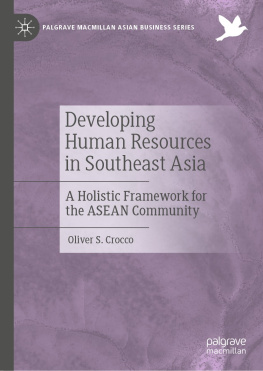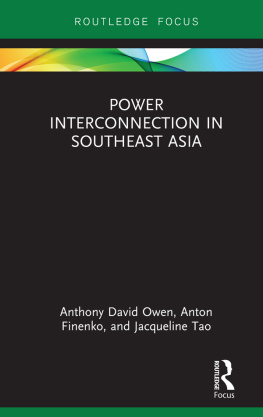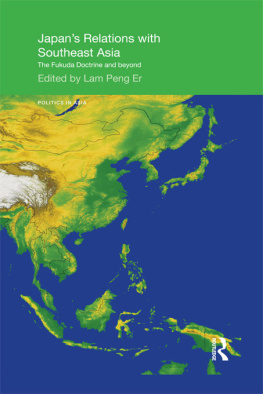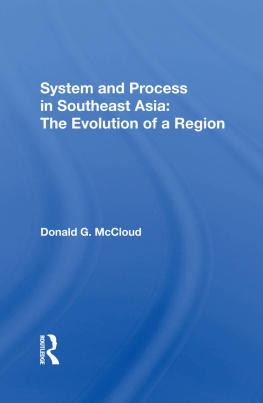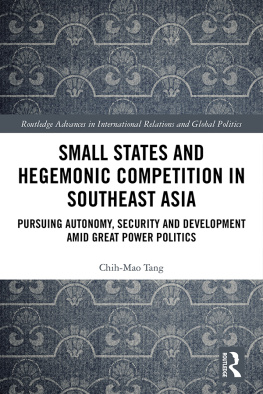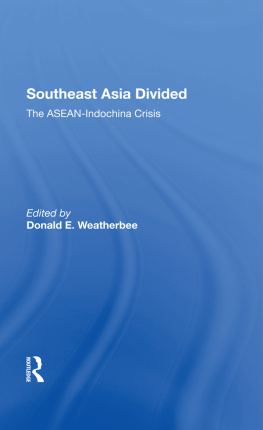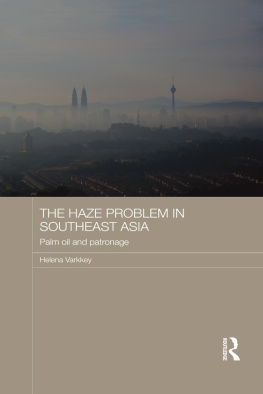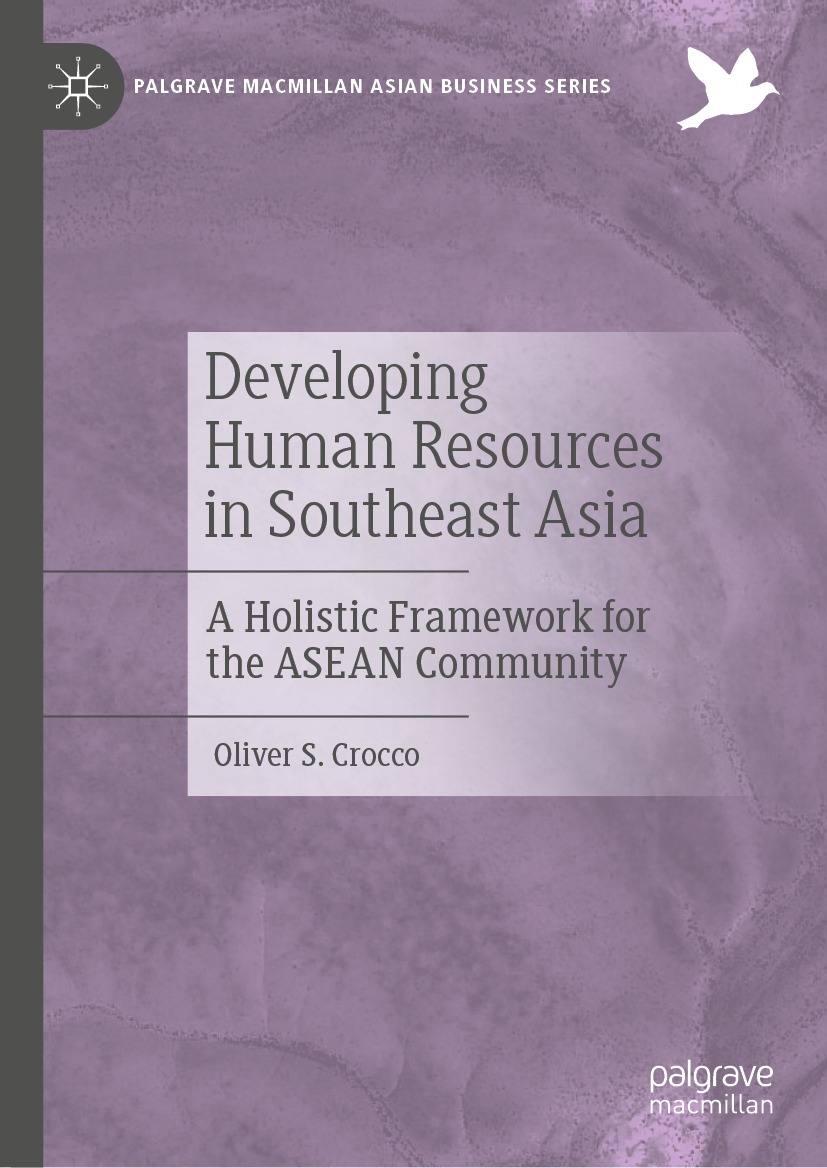Palgrave Macmillan Asian Business Series
Series Editor
Yingqi Wei
Business School, University of Leeds, Leeds, UK
The Palgrave Macmillan Asian Business Series publishes theoretical and empirical studies that contribute forward-looking social perspectives on the study of management issues not just in Asia, but by implication elsewhere. The series specifically aims at the development of new frontiers in the scope, themes and methods of business and management studies in Asia, a region which is seen as key to studies of modern management, organization, strategies, human resources and technologies. The series invites practitioners, policy-makers and academic researchers to join us at the cutting edge of constructive perspectives on Asian management, seeking to contribute towards the development of civil societies in Asia and further a field.
Each submission is submitted for single blind peer review. For further information please see our website: https://www.palgrave.com/gp/book-authors/your-career/early-career-researcher-hub/peer-review-process .
To submit a book proposal for inclusion in this series please email Liz Barlow at: liz.barlow@palgrave.com. Details of how to download a proposal form can be found here: https://www.palgrave.com/gp/book-authors/publishing-guidelines/submit-a-proposal .
More information about this series at http://www.palgrave.com/gp/series/14420
Oliver S. Crocco
Developing Human Resources in Southeast Asia
A Holistic Framework for the ASEAN Community
1st ed. 2021
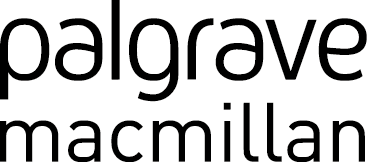
Logo of the publisher
Oliver S. Crocco
Louisiana State University, Baton Rouge, LA, USA
ISSN 2661-8435 e-ISSN 2661-8443
Palgrave Macmillan Asian Business Series
ISBN 978-3-030-79696-9 e-ISBN 978-3-030-79697-6
https://doi.org/10.1007/978-3-030-79697-6
The Editor(s) (if applicable) and The Author(s), under exclusive licence to Springer Nature Switzerland AG, part of Springer Nature 2021
This work is subject to copyright. All rights are solely and exclusively licensed by the Publisher, whether the whole or part of the material is concerned, specifically the rights of translation, reprinting, reuse of illustrations, recitation, broadcasting, reproduction on microfilms or in any other physical way, and transmission or information storage and retrieval, electronic adaptation, computer software, or by similar or dissimilar methodology now known or hereafter developed.
The use of general descriptive names, registered names, trademarks, service marks, etc. in this publication does not imply, even in the absence of a specific statement, that such names are exempt from the relevant protective laws and regulations and therefore free for general use.
The publisher, the authors and the editors are safe to assume that the advice and information in this book are believed to be true and accurate at the date of publication. Neither the publisher nor the authors or the editors give a warranty, expressed or implied, with respect to the material contained herein or for any errors or omissions that may have been made. The publisher remains neutral with regard to jurisdictional claims in published maps and institutional affiliations.
no cover credit
This Palgrave Macmillan imprint is published by the registered company Springer Nature Switzerland AG
The registered company address is: Gewerbestrasse 11, 6330 Cham, Switzerland
For my partner in life, Khai.
Preface
Studying and writing about ecosystems is a tall task. In general, the process of writing a scholarly book involves parsing out positions and structuring an argument to guide the reader through a set of ideas. This is difficult to do when the phenomenon of interest is an ecosystem, which, by definition, makes sense only via its interconnections and interactions. Like a 5000-piece puzzle, the picture comes alive when the pieces are put together. This is why I believe an ecosystems perspective is so important in understanding Regional Human Resource Development (Regional HRD) because the dimensions shaping the content and processes of HRD in a region make the most sense when viewed together.
How did I come to this work? As an undergraduate, I studied abroad in Turkey and was required to read a variety of books on history, culture, religion, and language. My coursework culminated in a term paper on Islamic mosques, which I presented in the foyer of the Sleymaniye Mosque in Istanbul. We were also required to keep a detailed journal throughout the study abroad experience, which instilled in me the prudent habit of constant reflection and notetaking. This primed me for reflective and curiosity-driven work when I moved to Southeast Asia in 2009. Before beginning my work at Payap University in Chiang Mai, I reached out to a colleague at the university who connected me with a local editor at Silkworm Books who recommended I read David Wyatts definitive history Thailand: A Short History, the novel Four Reigns by longtime Thai diplomat Kukrit Pramoj, and Heartwood of the Bodhi Tree by Thai Buddhist philosopher Buddhadsa Bhikkhu. Like many other non-Thai people fortunate enough to make Thailand their home, I became consumed with Thai history, politics, language, and culture.
After my first two years in the Land of Smiles, I returned to the United States to study Human Development and Psychology at Harvard after which I promptly returned to Payap. As part of my work, I collaborated on a USAID-funded project with the International Rescue Committee to develop three organizational development certificate programs offered to community-based organizations (CBOs) in Myanmar and along the Thailand-Myanmar border. I traveled to dozens of those CBOs and experienced firsthand the power of HRD for individuals, organizations, and communities. Since I was living in Thailand during the frenzy leading up to the implementation of the Association of Southeast Asian Nations (ASEAN) Economic Community in 2015, I began exploring the implications of ASEANs influence on HRD in the region. I also had the chance to travel to other countries in the region.
These experiences in Southeast Asia deepened my interest in HRD theory, research, and practice and led me to pursue doctoral work in Human and Organizational Learning at the George Washington University. There in Washington, DC, I wrote my first conference paper on HRD in ASEAN in 2016. My dissertation focused on learning, development, and organizational change in Myanmar, and I continued to write and reflect on HRD within the broader regional context. As a faculty member at Louisiana State University, I had the chance to present two additional papers on HRD at the regional level in Southeast Asia at conferences in Bangkok (2018) and Hanoi (2019). I also received a grant in 2019 that allowed me to spend time visiting organizations in the region and at the ASEAN headquarters in Jakarta. The input gained from those conferences and visits with Southeast Asian colleagues and friends proved invaluable to my thought process and mindset. Given the need for regional-level thinking about HRD in Southeast Asia, I took Beverly Clearys advice, If you dont see the book you want on the shelves, write it.

